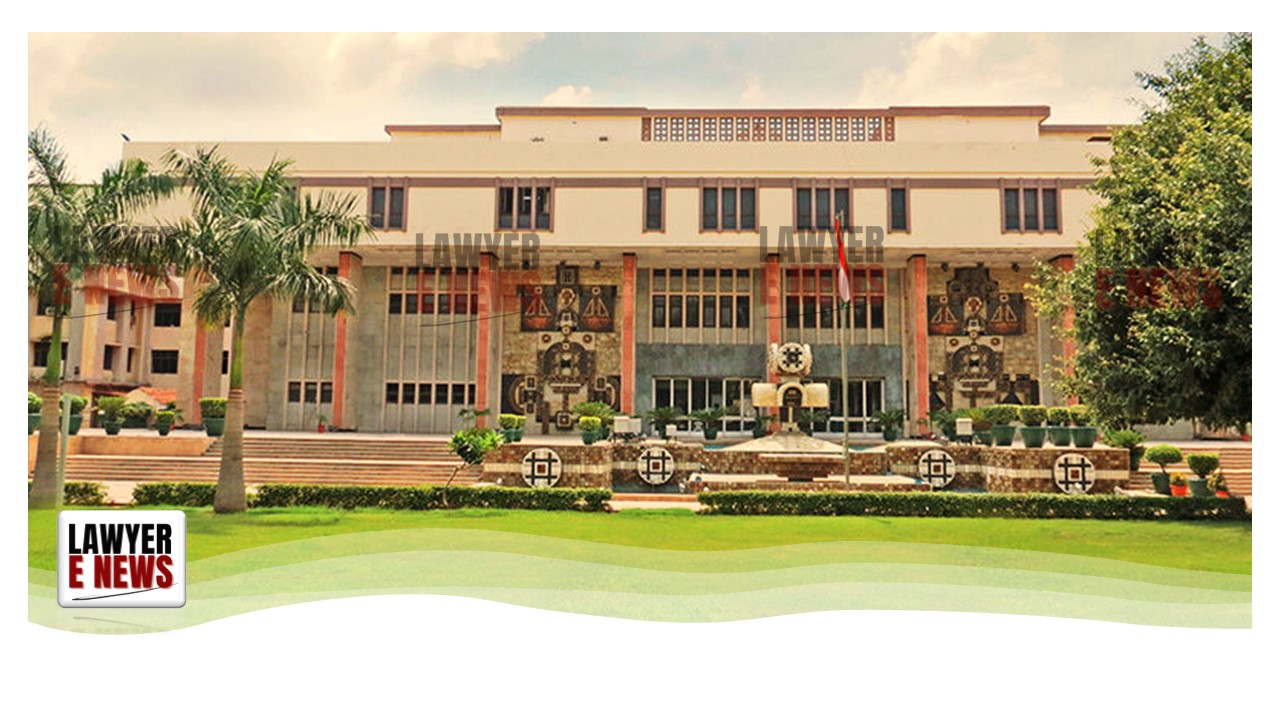-
by Admin
16 February 2026 4:21 AM



In a landmark judgment Delhi High Court modified the conviction of Raju @ Chanakya and Mukesh Kumar from murder under Section 302 IPC to culpable homicide not amounting to murder under Section 304 Part II IPC, sentencing them to the period already undergone. The Division Bench of Justice Prathiba M. Singh and Justice Dharmesh Sharma ruled that the prosecution had proved the guilt of the appellants beyond a reasonable doubt, but found that the act lacked premeditation, prior enmity, or cruelty and occurred in the heat of passion during a drunken altercation.
"The evidence establishes that the appellants, the deceased, and a juvenile co-accused were engaged in a heated argument while heavily intoxicated. There is no indication of prior planning or an intent to kill. The appellants cannot be held guilty of murder when the act occurred on sudden provocation without premeditation."
The Trial Court had convicted the appellants under Section 302 IPC read with Section 34 IPC for the murder of Manoj Dixit based on circumstantial evidence, including the last seen theory, forensic analysis, and DNA reports linking the accused to the crime scene. The appellants were sentenced to life imprisonment with a fine of ₹10,000 each, with a default imprisonment of six months.
As per the prosecution, Manoj Dixit’s body was found on August 27, 2013, on a bench in Kasturba Gandhi Park, Delhi, with multiple sharp injuries on the neck and head, suggesting a violent attack using a broken beer bottle. The last seen theory was relied upon, with witnesses stating that the accused and the deceased were drinking together in the park before the fatal attack.
Forensic reports played a crucial role in the trial. The DNA analysis of the bloodstains on Mukesh Kumar’s recovered shirt matched the blood of the deceased, and the post-mortem confirmed that the injuries were sufficient in the ordinary course of nature to cause death. The FSL report also detected alcohol in the blood and stomach of the deceased, indicating that he was heavily intoxicated at the time of death.
However, the Delhi High Court found that the altercation escalated in the heat of passion, leading to an unintended fatal injury. Exception 4 to Section 300 IPC was applied, which states that culpable homicide is not murder if it occurs in a sudden fight, without premeditation, and without cruelty or undue advantage.
"A Fight Between Drunken Friends Cannot Always Amount to Murder" – High Court Applies Exception 4 to Section 300 IPC
The High Court examined witness testimonies, forensic evidence, and legal precedents before concluding that the act fell within the purview of culpable homicide, not murder.
"It appears to be a case where the appellants, in an inebriated state, engaged in a drunken brawl with the deceased. Words were exchanged, tempers flared, and, in a moment of lost self-control, the fatal injury was inflicted. However, there is no evidence of prior intent to kill or any history of enmity. Applying the well-settled principles of law, we find that this case falls within Exception 4 to Section 300 IPC."
The Court noted that the absence of premeditation, lack of prior criminal record, and youthful age of the accused (Mukesh Kumar being 23 years old and Raju @ Chanakya being 27 years old at the time of the incident) warranted a re-evaluation of their conviction and sentence.
Last Seen Theory Must Be Corroborated by Other Evidence – High Court's Caution on Circumstantial Evidence
The High Court reiterated the principle that last seen theory alone cannot be the sole basis of conviction unless corroborated by other evidence.
"The last seen theory is a strong circumstantial link, but it must be evaluated in the broader context of the case. In the present matter, forensic reports linking the accused to the crime scene and the absence of any alternative explanation for the presence of the deceased’s blood on their clothes were additional incriminating circumstances that justified conviction, albeit under a lesser charge."
The refusal of the accused to undergo Test Identification Parade (TIP) was also considered an adverse inference, but the Court clarified that this alone could not elevate the case to murder when the totality of circumstances pointed towards a drunken fight gone wrong.
Sentencing Considerations – "Punishment Must Be Proportionate to the Offense"
In modifying the conviction, the Court took into account that both appellants had already served significant time in judicial custody.
"Sentencing is not a mechanical exercise. It must balance the need for deterrence with the individual circumstances of the accused. Given that the appellants have already undergone prolonged incarceration—Mukesh Kumar for eight years and Raju @ Chanakya for five years and nine months—we find that further imprisonment would serve no purpose."
Accordingly, the sentence was reduced to the period already undergone, and no fine was imposed. The Court directed their immediate release.
The judgment underscores the importance of intent in determining criminal liability. By recognizing that the accused did not pre-plan the offense and that the incident arose out of a sudden drunken altercation, the High Court applied judicial discretion to ensure proportionality in sentencing.
"The principles of criminal law require that sentencing be just, fair, and based on the facts of the case. This Court cannot turn a blind eye to the circumstances in which the crime occurred. The punishment must fit the crime."
With this ruling, the Delhi High Court has reaffirmed that not all homicides are murders and that each case must be assessed based on its unique facts and circumstances.
Date of Decision: January 28, 2025
